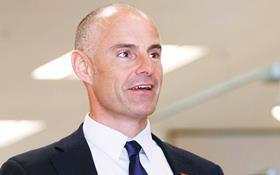
The heads of Sainsbury’s and Asda have been lambasted by MPs and accused of talking “baloney” about the effect of the retailers’ proposed merger.
Sainsbury’s Mike Coupe and Asda’s Roger Burnley said small suppliers would not be hurt if they follow through with their pledge to cut the price of everyday items by 10 per cent.
However, Neil Parish, chair of the Environment, Food and Rural Affairs (Efra) Committee, claimed small suppliers would inevitably bear the brunt, accusing Asda’s chief executive of coming up with 'nursery rhymes' and 'Mickey Mouse figures' to justify the merger.
“You can't have a 10 per cent saving without someone paying for it,' he said.
Parish also questioned claims by the two retailers that the combined business, which will have 2,800 stores and 300,000 staff, would have a 25 per cent, and not a 30 per cent, market share.
After the committee meeting, Asda issued a statement saying Burnley had cited 'the most reputable and respected three industry data sources', Kantar, Nielsen and GlobalData/Verdict, to come up with the market share figures of 12 per cent for Asda and 13 per cent for Sainsbury's.
MPs on the committee also raised doubts over whether the two brands would remain separate as announced. Burnley promised that Asda and Sainsbury's would still operate 'fiercely' as two separate brands, but Parish rubbished the claim.
'No you won't,” he said. “That is unbelievable. If you are going to make anything like the 10 per cent saving that you have promised then you will have to do joint buying.
'Don't come here and talk baloney. I can add up, I am not that stupid. Tell us some truths. You might have two separate brands for five minutes, six months or even a year. But your proposal to the government is just political correctness.
'It is a cut-throat business and I know exactly whose throat you will cut.'
Coupe insisted that savings on everyday products could come from larger rather than smaller suppliers, but Parish said he doubted this would be possible.
'It is not believable that it is only the big suppliers,' he said. 'They are bigger than you, and they are bigger than your combined operations.'



